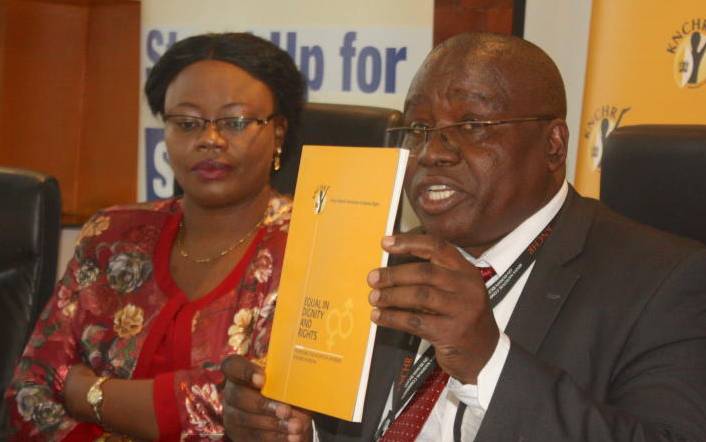×
The Standard e-Paper
Stay Informed, Even Offline

Kenya National Commission on Human Rights (KNCHR) CEO, Bernard Mogesa (right) flanked by Kiambu Woman rep Gathoni wa Muchomba during the launch of taskforce policy, institutional and administrative reforms regarding intersex persons in Kenya on Monday, June 09 2018. [David Njaaga, Standard]
Kenya National Commission on Human Rights has decried the backlog of cases in Kenyan courts which it attributed to arrests made in a bid to enforce Covid-19 rules.